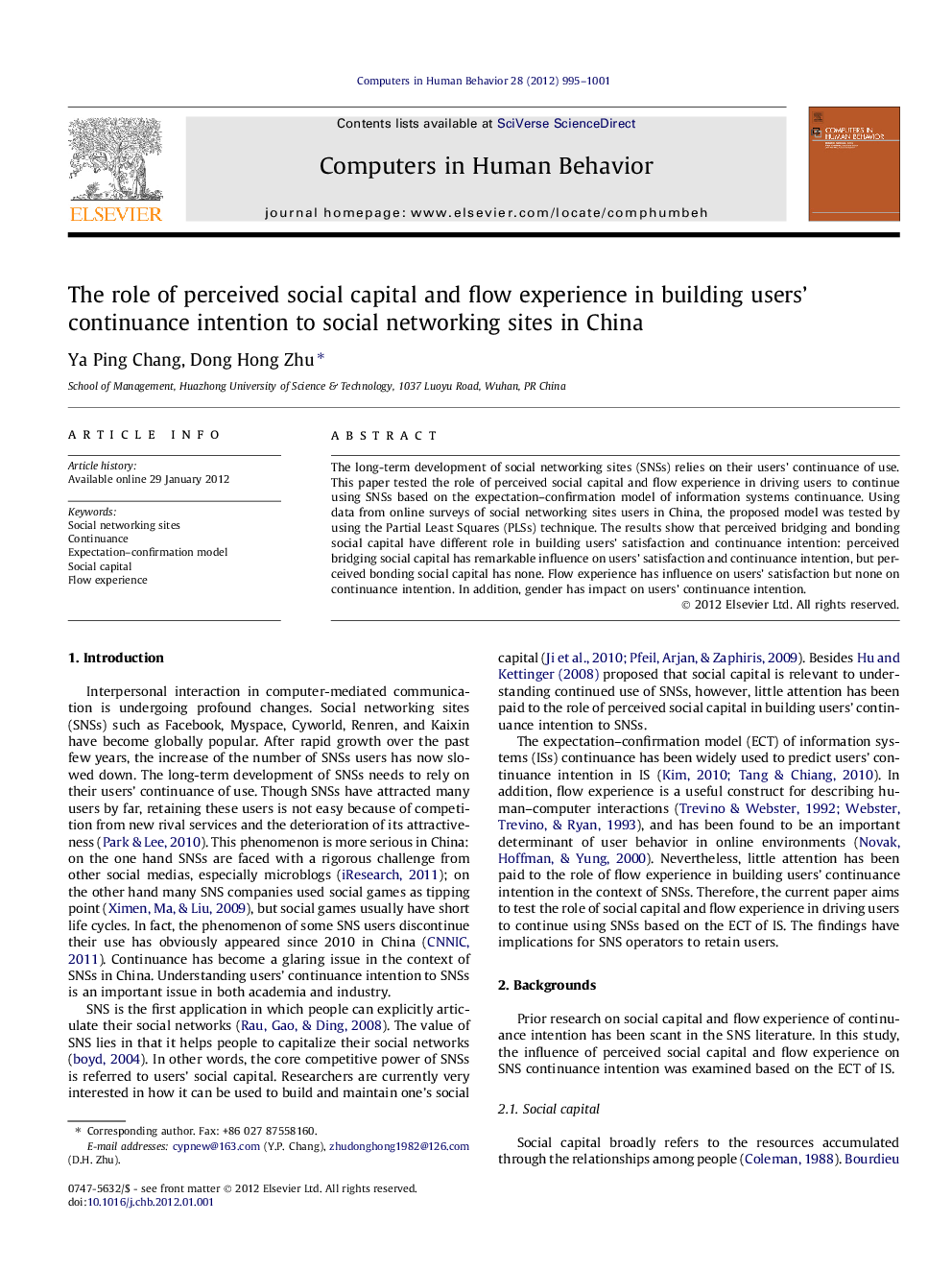| Article ID | Journal | Published Year | Pages | File Type |
|---|---|---|---|---|
| 351356 | Computers in Human Behavior | 2012 | 7 Pages |
The long-term development of social networking sites (SNSs) relies on their users’ continuance of use. This paper tested the role of perceived social capital and flow experience in driving users to continue using SNSs based on the expectation–confirmation model of information systems continuance. Using data from online surveys of social networking sites users in China, the proposed model was tested by using the Partial Least Squares (PLSs) technique. The results show that perceived bridging and bonding social capital have different role in building users’ satisfaction and continuance intention: perceived bridging social capital has remarkable influence on users’ satisfaction and continuance intention, but perceived bonding social capital has none. Flow experience has influence on users’ satisfaction but none on continuance intention. In addition, gender has impact on users’ continuance intention.
► We test the continuance intention of SNS users. ► Users have bridging social capital as well as bonding social capital on SNSs. ► Perceived bridging social capital has influence on continuance intention. ► Perceived bonding social capital has no influence on continuance intention. ► Flow experience has influence on satisfaction but none on continuance intention.
